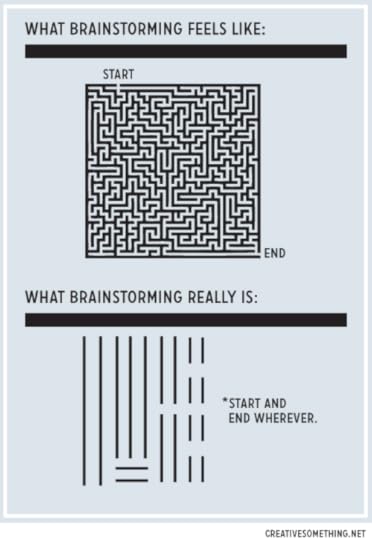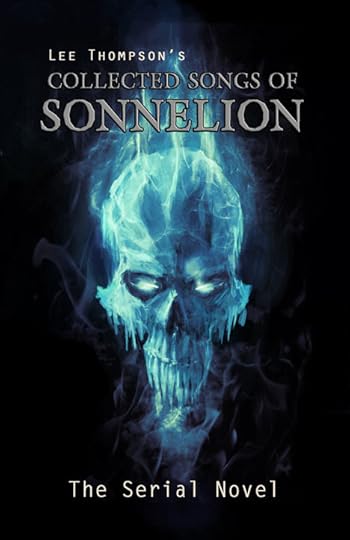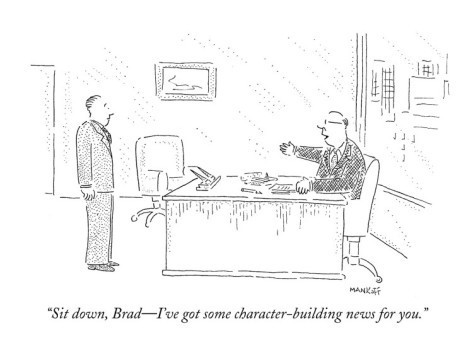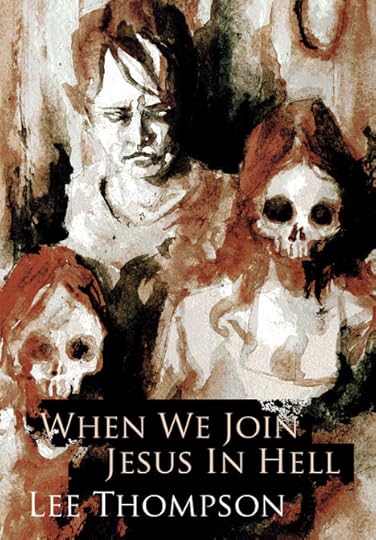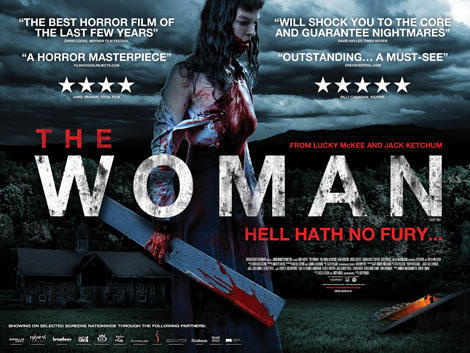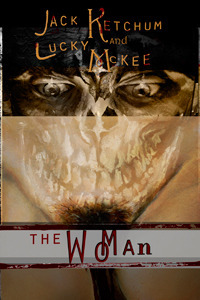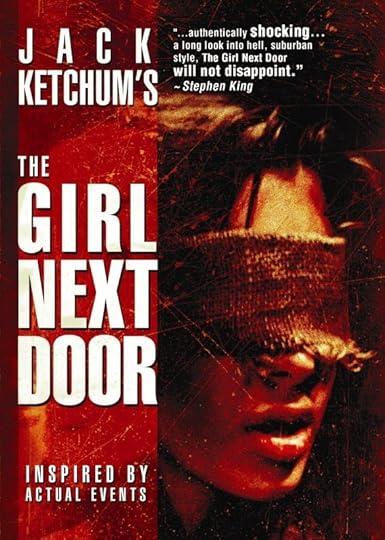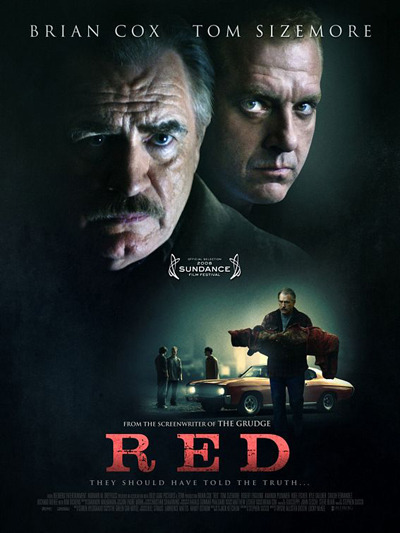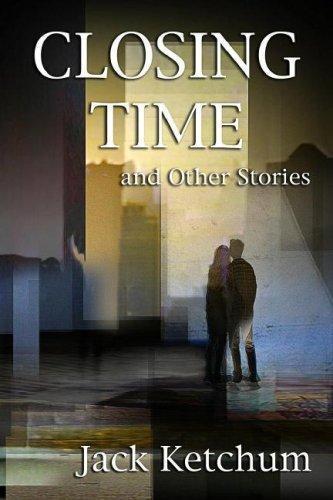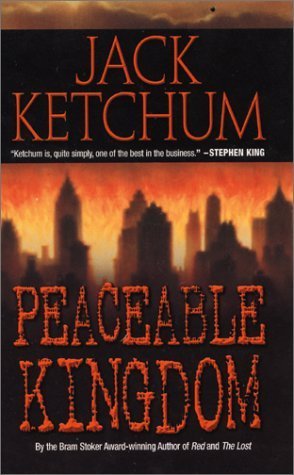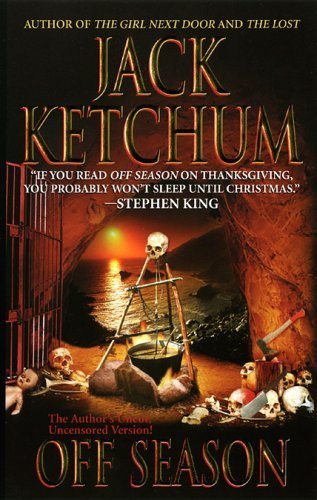Lee Thompson's Blog, page 17
July 22, 2012
Sandy DeLuca and Collective Suicide
Sandy DeLuca’s new author/artist website, which Peter Schwotzer designed, is up and running and it looks great. Peter designed my Division Mythos website, too. I’ll be interviewing Sandy soon, which is going to be fun.
Tom Piccirilli’s wife, Michelle Scalise, has a collection that just came out called Collective Suicide.
Have a lot going on here on the writing front that I look forward to sharing in the near future!
July 21, 2012
Chapter 22 Collected Songs of Sonnelion
Finally bought my first ever new computer. I love it. Typing on this Thinkpad is the bee’s knees. Going to give my old laptop, that I wrote the last ten books on, to my dad, which will be his first computer. Lol. What a weirdo. But I love him. Also love the serial novel that you should be reading (thanks to those who are following along!) With chapter 22 going live this past Friday we’re building up to the end of the novel and I’m super excited to hear what readers think when it’s all said and done. Especially those readers who know Red when he’s a much older man in the John McDonnell trilogy. Anyway, get to reading it on Darkfuse or Issuu and have a wonderful weekend!
July 16, 2012
Tuesday’s Training: Outlining/Brainstorming
I never thought I’d be one for outlining, but I am in a way and have been for years since I figure out the big shifts, those pivotal moments, before I sit down to write a new novel or novella. I don’t know all the beats, but I know the big ones, and still there are things that happen in the course of composition that surprise me, which is wonderful.
You don’t have to outline, just like you don’t have to wing it all. You can mix it up. Try both. Find what works for you.
What are the benefits of a loose outline?
1. By knowing the pivotal moments, setting them down on paper before beginning and thinking about those major scenes, gives us confidence. And confidence is essential when tackling a 90,000 word book that you’re just making up as you go…
2. You’re not writing a bunch of useless scenes that aren’t part of the actual story…
3. You save time since there won’t be as much to cut later during edits…
4. By knowing the big moments in your characters’ story you’re laying a strong foundation, and you need a solid foundation before you build the walls, and finally, the ceiling…
5. When you have a plan everything contributes to the focus of the novel, not the rabbit trails…
6. It helps you get a clear picture, and write clearer from the outset…
The major purpose of a loose outline is to keep focused on the story. That’s it. Do what works for you, just don’t be afraid to try it because you think it will choke your creativity. It won’t. You’re still asking what-if this, what-if that? Only doing it to a greater degree, through most of the story. You get those pivotal moments, those really important scenes, and you get to build bridges in the air between them.
July 13, 2012
Chapter 21 Collected Songs of Sonnelion
Up to chapter twenty-one on my Free serial novel. Things are really ramping up for the ending. Can’t wait to hear what everybody thinks once they read the last page in another seven weeks! You can follow along or catch up on either Darkfuse’s website or Issuu. And spread the word if you enjoy it. Word of mouth helps more than anything.
July 10, 2012
Tuesday’s Training: Character Building
What is it that makes engaging, memorable characters? Have you studied your favorites and found out why and how you can do the same?
This aspect of fiction is probably my favorite part of the process but one of the most difficult to try and write about since so much of the magic happens in our subconscious and as the story unfolds and our characters truly surprise us.
#1: I’d say that the element of surprise is where they first stand on their own, our creations yes, yet something greater. And it pays to let them do their thing, the shocking or touching or savage or forgiving thing we didn’t expect, and to avoid censoring whatever they do that seems so different than we imagined them being.
When I created my character Red Piccirilli he surprised me a number of times that totally took the story out of my hands and at times pissed me off because I thought I should trust me, not him. Bad move, Lee. Bad move. In the first book (Before Leonora Wakes) that starts off the Division Mythos he’s a simple, somewhat lonely twelve-year-old with an imaginary friend and a streak for adventure. He surprised me in that first book by not being your typical self-centered teen. But then the second book (Within This Garden Weeping) came along and he did something horrible that cost him a lot of respect in the eyes of his first crush. I wanted to see him forgiven but he’s conflicted, one moment sorry for what he did, the next justifying it. I hurt for him because I know what it’s like to try and protect someone and have it backfire on you. And Red doesn’t make half-hearted choices. The poor kid. Then in the third and current serial novel, The Collected Songs of Sonnelion (which you can read Free for another ten weeks or so,) Red surprised me again, sometimes with his trust even though he’s been through hell and shouldn’t have any trust left, and again he makes some choices that backfire and have grave consequences, all of this leading up to who he is in the first John McDonnell novel (Nursery Rhymes 4 Dead Children) when Red’s an old recluse living above a dusty hardware store. Phew. It’s hard to explain the changes and surprises without giving anything away so I guess I can only hint at them.
#2: Another thing that I see besides memorable characters who surprise is ones who are determined. Passive protagonists are lame and they’re boring. Pick up any well-read, popular novel and see how many passive leads occupy the course of three, or four, or five hundred pages. So, a determined character creates tension and propulsion. Story is made up of a character in a situation who makes choices and faces advancement or consequences from those decisions. Build a determined character. Someone who not only wants something (hell, anything) but needs it, feels like they’ll die without it even if everybody else thinks they’re crazy to feel that way.
What else creates memorable and engaging characters?
#3: Their unique view of the world they live in. When someone has strong feelings about where they come from in to comparison to where they are now it adds a lot of texture. When they have a unique view of themselves in comparison to who they’ve been and who they want to be it creates tension.
#4: An interesting back story can help. What truly interesting things have happened to your main character in his or her past? Not the mundane, but the life shaping, the soul-conditioning.
#5: Another thing that helps in creating engaging and memorable characters is thinking about all the of the mental illnesses most of us have (I’m certain a lot of people, myself included, are probably just undiagnosed.) What type of unbalance do they have and how does that affect their choices and consequences in the present story?
#6: Play up your character’s flaws because a story is all about growing. Some flaws may be beyond their desire, energy or own strength to fix, but if they’re aware of it and trying, it makes all the difference in earning a readers sympathy and respect. Sometimes a character will also view some trait as a flaw that others see as a strength, so it’s about perspective as well.
Once you learn to trust your characters and let them be themselves it’ll make your novel that much better.
Make sure you check out my FREE serial novel while it’s still free and tell everybody you know who enjoys dark fiction!
Also snag a collectible hardcover of my newest novella WHEN WE JOIN JESUS IN HELL before they sell out!
All right, gotta get back to work on this new novel The Lesser People. Hope everybody has a great week!
July 9, 2012
WHEN WE JOIN JESUS IN HELL preorders!
Super excited that my standalone novella WHEN WE JOIN JESUS IN HELL is up for preorder! You would be wise to snag it and read it and spread the word wherever you can so the monkey folk don’t steal your face.
Tom Piccirilli read it pre-pub, which was awesome of him. He said: “Lee Thompson knows his horror-noir. He fuses both genres together in the turmoil of terror, tragedy, blood, guilt, and lost chances at redemption.”–Tom Piccirilli, author of THE LAST KIND WORDS
Many thanks to everybody who has supported me and continues to do so! You can read an excerpt of the latest novella here.
Plus you should add it on Goodreads! And if you enjoy it, recommend it to others you think would enjoy it!
Home, he thinks, Where the heart bleeds freely.
A hell of a boxer, he earned the nickname ‘Fist’ back in the day. But during the past eight years, he’s transformed into somebody he no longer knows—a weak, pitiful, and passionless office drone.
Barely hanging onto the last thread of his self-respect, he returns home one night to discover Hell has truly crossed its threshold.
And Hell has lessons to teach him through what fragments remain.
Slivers of dark light.
Knowledge in blood.
Forgiveness, clarity and redemption in commitment.
July 6, 2012
Chapter 20 Collected Songs of Sonnelion
The first twenty chapters of my serial novel are live! And it’s free! There are only 8 weeks left, then it’ll only be online for a few weeks following that, so make sure you check it out and spread the word! Feedback on it so far has been terrific and I’m glad because I’m very proud of this novel. You can read along on Darkfuse’s website or Issuu every Friday afternoon as a new chapter goes live!
And if you missed it, take a peek at the Division Mytho’s website that Peter Schwotzer built for me. It’s awesome! Tons of inside info on this massive story I’m building.
July 2, 2012
Tuesday’s Training: Mindset and Personality Traits
Benjamin Barber, an eminent sociologist, once said, “I don’t divide the world into the weak and the strong, or the successes and the failures… I divide the world into the learners and nonlearners.”
Does everybody have the personality traits or mindset to be a professional writer? I doubt it. For some I bet it will never be more than a hobby, a release, a form of self-medication. And there’ s nothing wrong with that. From studying professional writers, athletes, musicians, etc., I think that to work as a professional yourself you need the traits and mindset the professionals possess. Talent and creativity are NOT enough to enable you to stand among your heroes.
Are you determined enough? Determination goes hand in hand with focus, one being long term, the other short. Without focus and the desire to learn/improve, determination is more detrimental than beneficial though. Sometimes it takes a lot of failure to achieve success. Sometimes we have no idea how much determination it takes until we look back nearly a decade and see nothing behind us but a mountain of rejection slips, and find that we’re just now holding that first paying acceptance. Determination is part faith, part ego, part fortitude, part training. You can learn to grow tough skin, learn to take constructive criticism and reject negative. How do you stay determined in those early years? If you’ve already got five, six, seven or more years with very little ‘success,’ what helps you keep going when the evidence (lack of sales) will make you question yourself and craft?
Are you humble enough/your ego in check? Nobody likes working with an asshole. Even worse is a drama queen. Deep down we all want to (or do) believe we’re special since our world view and our lives are supposed to be unique. But to be honest, mostly we’re not special, mostly our lives mirror the lives of those we’re attracted to and call friends. Sometimes thinking we’re ‘special’ and have a story only we can tell helps us stay determined. The world is full of talented jackasses. If we step back and see how little we truly know (not just about writing, but about everything) the easier it is to get a more realistic perspective on where we stand. Yeah, we have something to contribute (hopefully), something moving, or entertaining, yet reader response is pretty much the only yardstick by with which we can measure our creations. Simply being aware of our roots, our place in the big scheme, etc., can we keep our egos in check? Hell, everybody wants acceptance and validation, but those who only want that might as well get the fudge out and find some other means of expression.
Are you reliable enough? It takes a certain mindset to stay steady in output, in meeting deadlines while juggling tons of other projects, in upholding your side of the contract, in answering fan email, etc. Like a lot of things, organization, focus, and a plan help, but without actually being consistently reliable (producing your best work, on time) organizational skills and short-term focus aren’t enough. It takes stamina to build momentum in a writing career (or as a musician or athlete). It takes dedication and editors learn to weed-out the non-dedicated quickly.
Are you honest enough? You have to be honest with yourself in your emotions, your world view, your family view, relationships you’ve had, your mistakes, your treasures, what enthralls you and what disturbs you. And that’s just the first step! Then you have to portray that honesty through your characters in an effective manner that proves convincing and lasting. Honesty can’t be faked. I think it’s either something that you have or don’t have. If you’re prone to exaggerate or outright lie, the only thing you can do is be mindful of when and why and learn to nip it in the bud, even if it causes you internal struggle. Everyone wins when they’re honest.
Are you appreciative of others? Though we compose in solitude and study our craft with the door closed on everybody except the voices in our heads, people are the whole point behind writing. People help us, teach us, support us, humble us, inspire us, treat us, encourage us. We wouldn’t get anywhere with out at least a handful of close, like-minded, professionally driven amigos. If we never thank anybody it shows what really matters to us.
Are you curious enough? It takes an endless well of curiosity to supply the ink to our proverbial pen. Discovering, unearthing, learning, teaching (and in teaching, discovering more), always remaining mystified by life’s intricate web, enriches our work and our lives. Those who aren’t curious are obvious. Their stories are usually a rehashing of the same thing over and over and over. But the curious ones–like Bradbury, King, Gaiman–search out mysteries. Some people on the other hand just aren’t curious about much. Maybe they never will be because questioning things or confronting issues that piss them off or make them hurt, scares them. The world isn’t bland, our normal, lazy, conditioned perceptions are bland.
Are you comfortable with isolation? I love daydreaming, having brainstorming sessions on an upcoming project, being alone to read, going hiking by myself, the half hour or so I write every day in spurts of manic, blazing output. I don’t know how it is with the majority, but most of the pros advise getting in the chair, closing the door to distractions, and writing. You can’t do that while socializing. And writing novels takes a lot of focus, faith, confidence, intuition, and acquired skills. You may find that you have to spend hours upon hours alone to come up with one simple truth that has existed since the beginning of time but you simply overlooked because you were too busy in constant contact. Get used to isolation. And when not writing, go live so you have more to bring back to the drawing board.
Are you independent? Look up co-dependency, see how co-dependent you are in just your little writing circles, then reassess. You have to work toward a certain level of competency on your own.
Are you self-motivated? Nearly everybody who writes probably fantasizes about doing it for a living. I work part time still for my brother-in-law, mostly to stay in shape and keep myself from boredom since some of the best story sections take place while doing what has become a mindless task. When you don’t have a boss over your shoulder, when all you have is time, you might waste a lot of it. The dream bubble pops, you get bored. You procrastinate because, well, hell, you have all the time in the world! But you don’t. Because you’re pissing it away taking all that time thinking about what you could be doing (an old habit for a lot of people) instead of actually doing it. Find ways to self-motivate. Different things probably work for different people.
Is obsession part of your personality? It takes an almost unhealthy dose of obsession to reach a professional level. Mediocre writers are a dime a dozen. There are all kinds of things writers can obsess about, not all of them good. What’s bad to obsess about? How about what everybody is going to say before you’ve even finished the first chapter? How about how huge or small your first advance will be? How about paranoia and thinking that other writers, or agents, or editors will steal your ideas? Not a healthy kind of obsession. When I’m talking about obsession, I’m talking about an uncontrollable wonder of humanity, the world, the process of creation, the precision of well-placed words, how stories move us in ways very little else can. I’m talking about touching magic. I don’t think it’s something that can be taught or acquired. I think it’s a very deep (or not) place in our psyches.
Do you have a professional mindset? Do you want to do the best job you can do, be on time, give your customers what they pay for, handle your business effectively and efficiently, learn new ways to improve, think outside the box and forge new ground? Do you want to take each aspect of your writing career seriously, or only the writing itself and merely dabble in anything outside the creative side of it? Are you willing to study, implement and reassess? Can you balance the artistic and business sides of your career, or do you even want to?
Are you patient enough? Patience isn’t easy. Patience itself takes work that can already wear down what reserves of energy you have that day, week, month or year. But it’s necessary because there are no overnight successes and you’re unrealistic if you think you will be one. Better to accept that things will take time. A lot of time. A lot of work. A lot of learning. Then more patience.
Are you expressive enough? Every word and action sends a message. Take a hard look at every scene in your WIP. What message are your words and actions sending? It goes back to all of us being conditioned about how unique we are, then a lot of people churn out the same boring crap. Tap deeply into your emotions (and god, more than one of them over the course of a novel, please). I’m an intense person by nature, always have been, and it comes across in my work. And people that I know who are passive by nature tend to write passively, their characters skirting conflict constantly and the story going nowhere because they have passion but feel they’ll be punished for expressing it. If you’re passive, learn to be a little more forward and say exactly what you mean. Story is conflict.
Are you attentive to details? The right details, the right word choices, the right execution are all very personal. But editors and agents can see a big difference between an amateur and semi-professional by their attention to detail alone. Stephen King gives a great example of it in On Writing. Many other pros do as well. Details matter, but the right details. How do you learn that? I’ll always swear by hand-copying favorite books. It’s the best way that works for me to internalize how, why, when the masters do what, and to what extent.
Are you for change? A closed mindset in any profession hurts more than helps. Times change, people change, tastes change, perspective changes for you, for me, for our characters, from beginning to end. Cycles, patterns, order and chaos. It’s all part of the sweet and endless mystery. Be open to change. Be water. Be a learner. Nerds rule the world.
And if you missed the awesome news… My Division Mytho’s website, that has tons of awesome details about this massive storyline I’m building (over a million words), is now LIVE! I’m so excited. A huge thanks to Peter Schwotzer for designing it! And a big thanks to everybody who checks it out and shares!
Division Mytho’s website is live!
I think Peter Schwotzer did such an amazing job. Let me and Peter know what you think! And if you’re looking for someone to design a site for you send him an email!
This website will have tons of info on all of the books, the character sketches, a Timeline, behind-the-scenes material, etc. We’d love to get some fan art too, so if there is a character, place or moment you’d like to draw, paint, etc., snap a pic of it and send it on!
Division Mytho’s Website entry… Bam!
Please spread the word around Facebook, Twitter, Goodreads, etc.
Thanks so much for the support!
June 30, 2012
Interview: Jack Ketchum
A big thanks to Turner Mojica for the photos (copyrighted by Steve Thornton).
Jack Ketchum (Dallas Mayr) was one of my first favorite Horror authors. His work is real, bold, and though it’s brutal it also has moments of tenderness. Sometimes it’s about survival, but usually there is a lot more going on than breakneck action pacing. He’s a master of character development, and talented in both the short and long fiction forms. I was super excited to share pages with him in A Hacked-up Holiday Massacre. Stephen King said this about him: Who’s the scariest guy in America? Probably Jack Ketchum… If you’ve read his work you know why I’m so honored to have him share with us. If you haven’t read his work get your ass moving.

copyright Steve Thornton
Lee: Thanks for taking the time to share with us, Dallas! I loved how in high school your teacher had everybody write a favorite author to see if the authors would respond. You wrote Robert Bloch (Psycho) and it was the start of a mentorship/friendship until he passed away in 1994. How crucial do you think his influence was on you as a young writer? Has it become so ingrained that you still hear his voice in your head while composing a new book?
Dallas: Bob read and commented on every damn thing I wrote until the day he died, whether it was a play, a poem, or a story. He was an enormously generous and helpful teacher — and smart about the business too. He had no illusions that it was easy. “It you don’t have to write,” he said, “don’t.” Then, in my senior year in college I sent him a story, a thinly-veiled lament for a love gone south, and he wrote “you’re already doing some things better than me.” You could have knocked me over with the proverbial feather. But for all the times my stuff didn’t quite work for one reason or another, you can bet I kept that well in mind. It was almost like he said I had an obligation to keep at it. Aside from the occasional black wisecrack for which he was so justly infamous, I don’t hear his voice too much in my writing, but it’s easy to summon it now. It comes complete with a crooked smile.
Lee: Congratulations on the recent success of The Woman. You co-wrote the screenplay and novel with Lucky McKee and were on-site a lot, correct? What surprised you most about the whole experience?
Dallas: That I was allowed to be there. See? The occasional black wisecrack. But in all seriousness, it’s a kind of given in the movie business that writers aren’t usually welcome on the set. Lucky and company gave me the run of the joint. And I was actually able to be helpful on a few occasions when we needed an instant rewrite. Beyond that, having him as my writing partner was great fun. We think along the same twisted lines and complement one another’s styles really well. Lucky’s an intuitive, jump-ahead type of guy, whereas I’m more of a plodder, more detail-oriented. It’s a nice fit.
Lee: Is there a book that you’ve always wanted to write but haven’t for some reason? If so, do you think you’d ever give it a go?
Dallas: Yes, it’s about Class D dog dealers and their abuses — their many, many abuses. But I’m not at all sure that I want to live with those images in my head for as long as it takes to write about them. Every now and then as a writer you have to break your own heart on purpose. But I don’t know if I could handle that day in and day out. We’ll see.
Lee: How have you changed over the years in viewing yourself as a writer, or has your identity and confidence mostly remained consistent?
Dallas: I know how to do all kinds of tricks now that I didn’t know how to do back when I started. I’m not always sure that’s a good thing. Sometimes, like Ray Prince once said, I want to be what I was when I wanted to be what I am now. Every time I read a good book, I’m still studying, though, as well as having fun.
Lee: Much of your work comes from real life (and is probably one of the reasons besides your ability as a writer that it’s so powerful). Yet you can make a very unlikable character somewhat sympathetic. Do you think some people’s aberrations are incurable? Or is there hope if a very messed up individual sought help?
Dallas: Seems to me that the evidence is in and that there are some people who are simply way beyond help. In fact I’m not even sure I’d characterize them as human at all, any more than I’d say a chimp is human just because chimps resemble us — more like some genetically mutant subspecies which walks the walk and talks the talk but which is minus the empathy and conscience gene. That ape is dangerous.
Lee: Only a few people know that my character Red Piccirilli is based on a combination of Tom Piccirilli and your novel “Red,” which is one of my favorite books. It seems in the novel that love is a leveling force. I always enjoyed the two-fold aspect of his love for Red and how love is an avenging force. What are some of your favorite themes to explore and dramatize?
Dallas: Love’s not only the leveling force to RED, it’s the key to Avery’s character — love and its loss. Without the backstory about the death of his wife and son coupled with his loss of Red, this would just be another revenge story. Instead it’s about a good honest man seeking justice. A reader once told me that he thought almost all my stuff is really about loss. I don’t know about all of it, but having thought about it, a good part is. I like to write about love and empowerment, about good people in bad situations and how they do or don’t deal with it.
Lee: With some many wonderful things happening every year, how do you manage to celebrate each success without it all just blurring together?
Dallas: Good things have happened to me slowly,over time, so I’ve had a chance to savor them. I’m not some overnight sensation suddenly bludgeoned by the crush of fans and critics. The idea of an entourage scares me silly. When I was a kid I thought I wanted to be Elvis. I’m sure glad it never happened. I’d have been dead before I hit thirty.
Lee: When I tell people they need to read your work I suggest three for them to try: Red, Old Flames (the version with Right to Life), and The Girl Next Door. Which three books would you recommend to a new reader?
Dallas: That depends on your tolerance for violence. Hell, some people should never read me. If your tolerance is high, I’d suggest starting with OFF SEASON. I always like to start with an author’s first book and see how he matures and changes and that OFF SEASON was mine. If your tolerance is low, I’d suggest RED. And then it’s always nice to have an overview, some sense of a writer’s scope. In that case I’d suggest the story collections, PEACEABLE KINGDOM or CLOSING TIME AND OTHER STORIES.
Lee: Where can people find you on the convention circuit this year?
Dallas: The only conventions I’m committed to thus far are NECON in Rhode Island in July, KillerCon in Vegas in September, and Rock ‘n Shock in Massachusetts in October. Keep an eye on my website’s Appearances page for updates.
Lee: Thanks so much for spending time with us, Dallas! Anything you’d like to share before we say goodbye?
Dallas: Ne pas sto kala. Go with the good.
Ketchum’s Website (which you better visit)

copyright by Steve Thornton


